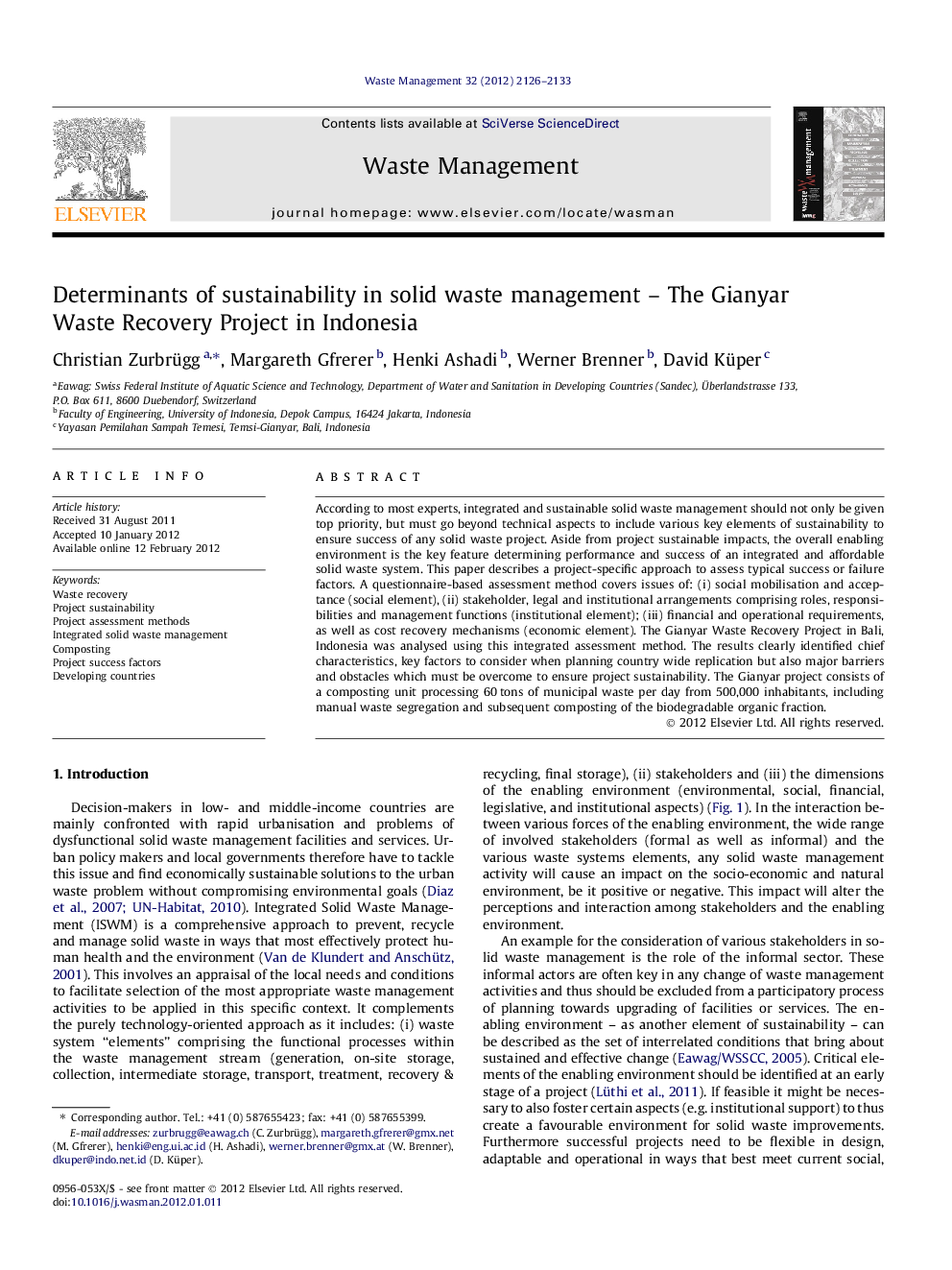| Article ID | Journal | Published Year | Pages | File Type |
|---|---|---|---|---|
| 4472137 | Waste Management | 2012 | 8 Pages |
According to most experts, integrated and sustainable solid waste management should not only be given top priority, but must go beyond technical aspects to include various key elements of sustainability to ensure success of any solid waste project. Aside from project sustainable impacts, the overall enabling environment is the key feature determining performance and success of an integrated and affordable solid waste system. This paper describes a project-specific approach to assess typical success or failure factors. A questionnaire-based assessment method covers issues of: (i) social mobilisation and acceptance (social element), (ii) stakeholder, legal and institutional arrangements comprising roles, responsibilities and management functions (institutional element); (iii) financial and operational requirements, as well as cost recovery mechanisms (economic element). The Gianyar Waste Recovery Project in Bali, Indonesia was analysed using this integrated assessment method. The results clearly identified chief characteristics, key factors to consider when planning country wide replication but also major barriers and obstacles which must be overcome to ensure project sustainability. The Gianyar project consists of a composting unit processing 60 tons of municipal waste per day from 500,000 inhabitants, including manual waste segregation and subsequent composting of the biodegradable organic fraction.
► Our assessment tool helps evaluate success factors in solid waste projects. ► Success of the composting plant in Indonesia is linked to its community integration. ► Appropriate technology is not a main determining success factor for sustainability. ► Structured assessment of “best practices” can enhance replication in other cities.
